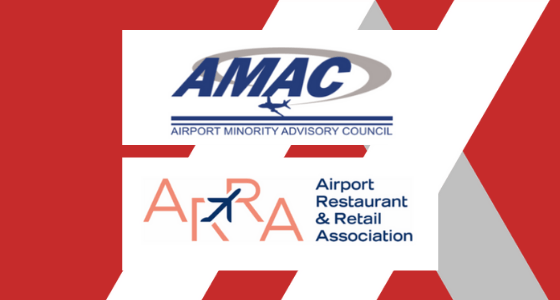It may not happen before the election, but airline industry representatives assured listeners on a weekly industry call that they fully expect another aviation stimulus, although they did not speak specifically about airports or concessionaires.
Guests on the call, sponsored jointly by the Airport Restaurant & Retail Association (ARRA) and the Airport Minority Advisory Council (AMAC), included two airline speakers: Bob Montgomery, a former senior advisor for Southwest Airlines, who retired last week and is now a consultant; and David Hamm, the former managing director, corporate real estate, Delta Air Lines, who is also now consulting.
“I think whether it happens before or after the election, you’ll see some more federal intervention,” Hamm said, noting that the travel industry is integral to sustaining a positive business environment.
Montgomery agreed, noting that “transportation is so critical to the economy that we’re just going to have to have some kind of aid out of the federal government.”
The comments came against a backdrop where President Trump on Tuesday called off any negotiations on COVID-19 relief, although he later messaged that he was willing to sign select bills, including $25 billion for airlines, if Congress passes such legislation. At press time, no bill had passed.
Both Montgomery and Hamm agreed that only one more stimulus will likely be forthcoming, with Montgomery saying, “it’s hard for me to imagine a third trip to the well, mainly because the government gets their funds from us taxpayers and their ability to continue to subsidize, absent a strong economy, is limited.”
“Each of the individual companies, those on this call and the airlines, are going to have to figure out how to survive first and then how to thrive,” Montgomery continued. “Airlines are thinking about how [they] reimagine networks. On the airport restaurant retail side of the equation, we’ve got to think of new ways to … provide the customers with what they want, if we are truly going survive.”
On the airline side, Montgomery said airlines are having to “get really creative” with networks and schedules. “[Airlines] don’t want to give up destinations for others to come in and serve [where they could] gain a lot of strength,” he said. “While they may be reducing frequencies and they may be cutting flights, they aren’t necessarily cutting true destinations.” He also noted that Southwest Airlines recently announced new service to Steamboat Springs, Colorado, Palm Springs and Miami, markets that he said Southwest would have been unlikely to serve in the past. Offering small amounts of service is feasible, he said, and “any seat that’s taken and any seat that a customer will pay for is a real economic contribution to the airlines.”
Hamm cautioned listeners that airlines will be downsizing their staffs in the current environment, but that doesn’t necessarily mean more route or service cuts. “As you hear about the layoffs, that’s just rightsizing to what the airlines already are,” he said.
Looking ahead, both call participants discussed airport financial structures and whether privatization or public private partnerships will increase due to funding constraints on airports. Hamm is skeptical of any major changes. “The risk factor is even higher than it was pre-pandemic, so I don’t [expect changes],” he said. “I think honestly, as a public entity, [airports] have some cushion … even though there are constraints around how they’re operated.” He noted, however, that select parts of airports could be privatized through P3 agreements.
Montgomery agreed. “I tend to think that as we run into these problems of cash, that that there’s going to be a role to play for some kind of limited private operation – not privatization of the whole enchilada, but maybe a private operation of a terminal…. [There are] private entities and consortiums that want to get into the private operation of airports in the United States and they don’t have the current cash constraints [felt by] our current system.






